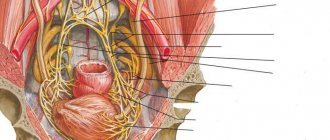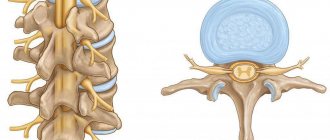Severe fatigue is familiar to many people. It is usually associated with the presence of physical and mental stress the day before. It quickly disappears after rest. These conditions often occur after rush jobs at work, passing exams, going to the countryside and other similar activities.
In this case, people know what causes fatigue and clearly determine the moment when they felt it. When chronic fatigue develops, a person does not realize at what point it arose. The patient does not understand the cause of this condition and experiences serious inconvenience due to decreased performance.
Description
Chronic fatigue is a condition when a person is bothered by a feeling of discomfort with constant mental and physical weakness. The patient is in a state of fatigue. It occurs for unknown reasons and lasts more than six months.
A distinctive feature of asthenic syndrome is that its main symptoms persist after prolonged sleep and prolonged rest. Changing activities or avoiding daily responsibilities does not resolve problems.
For the first time, chronic fatigue syndrome began to be presented as a separate diagnosis to patients in 1988. Before this, it was not considered a disease. Severe variants of asthenia were classified as atypical infections.
Asthenic syndrome often affects young people. In women, this disease is detected more often. The syndrome develops in hyper-responsible and active people, who can be called workaholics.
Mental disorders have become perhaps the most common disease in the fast pace of modern life. The human psyche very often malfunctions due to excessive stress at work, the fast pace of life and the influence of many other stress factors. In the modern world, a person faces many challenges that he tries to overcome, which inevitably leads to stress and mental disorders. Stress itself, as the body’s reaction to a survival situation, is simply an adaptive reaction, even a useful one. Problems begin where stress becomes excessive and leads to damage, distress and dysfunction in the body. This breakdown of defense is called distress . This is the cause of all the problems that arise due to overvoltage.
Examples of causes of stress-related mental disorders:
- Incorrect work schedule or too much workload;
- Conflict situations with management;
- Change of place of work, study or residence;
- Lack of sleep and rest to fully restore the body;
- Poor nutrition (fast foods and quick snacks instead of full meals);
- Lack of vitamins and minerals in the body;
- Problems in your personal life.
Symptoms of distress can appear gradually, so many people simply do not pay attention to minor problems in their body, which accumulate and lead to serious problems.
The main symptoms of mental disorders arising from distress:
- Increased level of irritability;
- Depressed mood or
- Anxiety, the emergence of fears and gloomy thoughts;
- Poor memory;
- State of chronic fatigue, decreased performance;
- Distracted attention;
- Sleep disorders.
In addition, mental disorders can also be accompanied by physical abnormalities in the functioning of the body, which force many to pay attention to their health and even seek help from specialists.
The main physical symptoms of distress that occur with mental disorders are:
- Severe and frequent headaches;
- Poor appetite or even disorders in the digestive system;
- Pressure surges;
- The occurrence of shortness of breath and rapid heartbeat.
If such symptoms occur repeatedly, and even more so if they recur regularly, you should definitely consult a doctor. The correct decision in such a situation would be to call a psychiatrist at home or make an appointment at the clinic.
Treatment options for mental disorders
For a complete and correct treatment of any asthenic or depressive nervous disorder, it is necessary to find its main cause and eliminate it (get out of a difficult and protracted relationship, have a serious conversation with your boss or change jobs altogether, get to know your neighbors if you have just moved to a new place) . However, all this can take a lot of time and is not always feasible, but special therapy can help eliminate the main symptoms of nervous disorders.
There are two main ways to treat mental disorders:
- Non-medicinal. Moderate physical activity, the use of special techniques for rest and relaxation (meditation, massages, yoga), psychotherapy sessions, proper nutrition and a healthy lifestyle (complete cessation of smoking and drinking alcohol);
- Medication. This method includes taking medications that help relax and restore the body - sedatives, products based on plant extracts, vitamin complexes, homeopathic drugs, as well as tranquilizers and antidepressants.
Do not forget that taking any medications must be discussed with your doctor (especially sedatives, tranquilizers and antidepressants), since they may have side effects and contraindications.
Causes
The exact causes of this disease in humans are still being studied. Experts believe that pathogens of infectious pathologies play a leading role in the development of chronic asthenia. The following pathogens are identified:
- cytomegalovirus;
- coxsackie viruses;
- herpes virus;
- Epstein-Barr virus and others.
Presumably, the pathological condition occurs due to prolonged antigenic stimulation of immunocompetent cells. During their activity, cytokines are released. Fever, muscle pain and chills have been associated with these substances.
Experts have identified a connection between asthenia and a disorder of the limbic system in the brain. This structure is responsible for the emotional sphere, memory, autonomic regulation of organ activity, circadian rhythms of the body, and performance. These functions are impaired in people with chronic asthenia.
How to relieve nervous tension at home
First of all, relieving tension consists of balancing the emotional state. In other words, the primary tasks for an individual are to recognize the presence of a problem and find possible ways to free themselves from an oppressive situation.
So, treatment of nervous tension, elimination of tightness and excessive excitability should begin, first of all, with awareness. As stated above, you should eliminate the cause that gave rise to such a condition, understand the root of the problem, identify the provoking factor and select the most suitable method that will help you achieve emotional “peace” within yourself in one fell swoop and eliminate constriction.
Further, the “work” consists of eliminating subconscious fears. Uncontrollable, causeless fear can hinder all effective efforts to cope with the approaching stress. You should learn to manage and eliminate them, in order to subsequently replace them with a feeling of peace.
In order to avoid exhaustion of the nervous system, you need to stop accumulating feelings on the subconscious level. Stiffness of the body and an excess of nervous tension often give rise to negative emotions, such as resentment, anger, rage, envy, arrogance. In order to feel relief and throw off the burden of negativity, you need to talk through all the accumulated emotions. You can, for example, write a letter outlining a situation that gives rise to emotions with a negative charge, and the negative feelings themselves.
All psychological prohibitions should be excluded. Any positive desires must be realized. Otherwise, the desire is transformed into a heavy cobblestone falling into the depths of the subconscious. All restrained desires and dreams are emotional clamps that block the feeling of joy and happiness, leaving only suffering and a persistent feeling of dissatisfaction with oneself.
In the battle against nervous exhaustion, meditative practices and auto-training in the form of affirmations have proven themselves to be excellent. Repeating positive attitudes will help lift your spirits and overcome bad feelings.
Sports are also effective in eliminating excess tension. Physical activity promotes the production of the happiness hormone, which invariably has a beneficial effect on the emotional state.
There are also ways to quickly relieve nervous tension in adults. They are listed below.
First of all, in order to quickly eliminate the effects of nervous tension, it is recommended to change the environment. And here a walk with alternating pace of movement is ideal. Quite quickly the irritation will subside. Since the functioning of the endocrine system is normalized, the activity of the areas of the brain responsible for mood is activated, the processes generated by stress are switched to ensuring physical activity.
The result is achieved more quickly if, during a walk, you shift your attention from the problematic issue to something else, for example, to daydreaming.
Painstaking work with your hands will also help eliminate nervous tension: you can sort out small parts, type something on a computer, or knead an anti-stress toy. After all, the fingertips are “equipped” with a huge number of nerve endings, the activation of which eliminates tension.
If your health allows, then extreme food will help relieve stress, for example, you can eat a piece of hot pepper. It is believed that this action will cause a rush of endorphins.
The usual touches of loved ones and their hugs have a quick effect. They recharge the individual with positive energy and are able to restore internal balance.
Intimacy is considered an effective and quite useful method that has no side effects. This process affects the production of pleasure hormones, which has a beneficial effect on the nervous system. In addition, thanks to intimacy, spasms and muscle tension, which always accompany prolonged nervous tension, are eliminated.
In order to get rid of accumulated tension, it is necessary to take an example from the little inhabitants of the planet. Kids love to make faces and imitate adults. For which they are often scolded. And in vain. Little ones intuitively know how to quickly relieve nervous tension. Therefore, if your mental strength is running low, you need to indulge in such a fun and rather simple activity as making faces or making faces in front of a mirror surface. This will not only free you from emotional burden, but will also definitely improve your mood.
It is also recommended to smile when you are feeling unwell. There are often circumstances when you want to howl, but even under the weight of insoluble problems and emotional exhaustion, you must try to stretch your lips into a smile. The body will be sincerely amazed at the “abnormal” reaction. He will be amazed and decide that everything is fine and will only get better. Doctors have long established the existence of a direct relationship between the blood supply to the cellular structures of the brain and the involvement of facial muscles.
When a human subject smiles or laughs, blood flow into the tissue structures of the brain increases, therefore, the oxygen content also increases, which affects the performance of the brain and has a beneficial effect on the state of mind. As a result, laughter and smiling eliminate fatigue and promote switching to a different state, activating the body’s protective response.
Symptoms
The onset of the disease is often preceded by any infection. It could be a common cold. Normally, after an acute period of illness, weakness is observed for no more than three weeks. Periodically, the patient experiences headaches, depressed mood and increased fatigue.
In the case of chronic asthenia, these symptoms do not go away even after six months. The patient understands that this situation is abnormal and turns to doctors. The main symptom with which he comes to the doctor is a feeling of constant fatigue. It does not go away after a night's sleep. Even resting for several days does not help get rid of it.
A small proportion of patients experience drowsiness. Most people develop insomnia. They often report that their performance has decreased and their attention has weakened. Patients complain of the inability to concentrate. They are concerned about changes in their emotional state, such as:
- hypochondria;
- depression;
- apathy;
- phobias.
Patients often experience thermoregulation disorders. Temperatures rise or fall over a long period of time. Patients are constantly worried about headaches, photophobia, dry eyes, dizziness, sore throat, and palpitations. Some patients lose weight dramatically.
Causes of the disease and risk group
Not every person becomes neurasthenic, even under enormous loads and stress. Most often, asthenic neurosis affects people with the following characteristics of character and lifestyle:
- having an asthenic type of character, the main features of which are vulnerable pride, an exaggerated sense of one’s own inferiority, isolation, shyness, irritability, dysfunction of the autonomic nervous system, suspiciousness, anxiety, increased exhaustion;
- those who deliberately neglect proper rest are workaholics;
- those who do not know how to properly organize the work process;
- those who strive to bring work to perfection, even to the point of missing deadlines, are perfectionists;
- overly responsible, striving to complete work on time and in full at any cost;
- those who have taken on an overwhelming amount of worries - those working in several places, students with part-time jobs, housewives with children and sick elderly relatives, etc.
The character traits described may be the result of personality traits, or too strict upbringing with exorbitant demands, or heredity to asthenia. People with neurotic character traits are a risk group for the appearance and development of asthenic neurosis, but character traits are not enough; a psychotropic factor is also needed, which gives impetus to the onset of the disease.
In addition to the personality psychotype, the main causes of asthenic neurosis lie in the negative impact of an endogenous or exogenous nature on the human psyche:
- excessive physical or intellectual stress leading to exhaustion of the nervous system;
- excessive demands made by management, colleagues, relatives, excessive criticism on their part, contributing to the development of an inferiority complex;
- an unhealthy environment (prejudice, bullying) in the workplace, at an educational institution or in the family, in which a person is constantly in anticipation of a scandal, insult, or physical violence;
- work or study in a highly competitive environment that does not provide the opportunity to fully rest and relax;
- incorrect choice of type of activity, education, including at the insistence of parents or other relatives, the need to engage in unloved work;
- chronic diseases that weaken health and complicate the performance of professional duties;
- endocrine diseases that disrupt the balance of the autonomic nervous system;
- stimulating the nervous system with alcohol and drugs;
- unhealthy, sedentary lifestyle, poor diet, obesity, leading to metabolic and hormonal imbalances;
- long-term financial problems causing feelings of inadequacy.
Diagnostics
Patients are diagnosed with chronic fatigue syndrome based on characteristic complaints. They must meet the following criteria:
- presence of severe fatigue for more than six months;
- the condition does not improve after a long rest;
- There are no somatic or mental diseases that can be considered the cause of asthenia.
There are also minor criteria that may be present in a patient with chronic asthenia. These include the following:
- temperature rise to 38.5 °C;
- pharyngitis;
- increased pain in the lymph nodes;
- muscle pain;
- general weakness;
- severe headaches;
- low exercise tolerance;
- joint pain without signs of inflammation;
- sleep disturbance;
- psycho-emotional disorders: depression, loss of memory and attention.
The disease often has a sudden onset. The diagnosis is made when the patient has two major and four minor criteria.
Treatment
Treatment for chronic fatigue syndrome is carried out by a neurologist. It is intended to eliminate symptoms and improve performance. The doctor prepares an individual course for the patient, based on his complaints. With the help of medications, nervous tension or pain is relieved. The patient is prescribed vitamins and microelements.
The patient is recommended to cure all chronic pathologies. He must strictly observe the work and rest schedule and adhere to a nutritious diet. The patient is undergoing psychotherapy. He is recommended to engage in swimming and physical therapy. It is necessary to give up bad habits.
Treatment of chronic fatigue syndrome takes a long time. The patient must be patient and strictly follow all the doctor’s recommendations.











